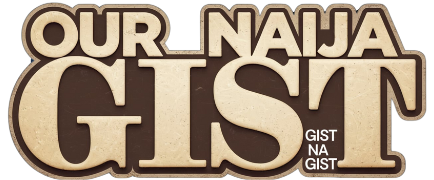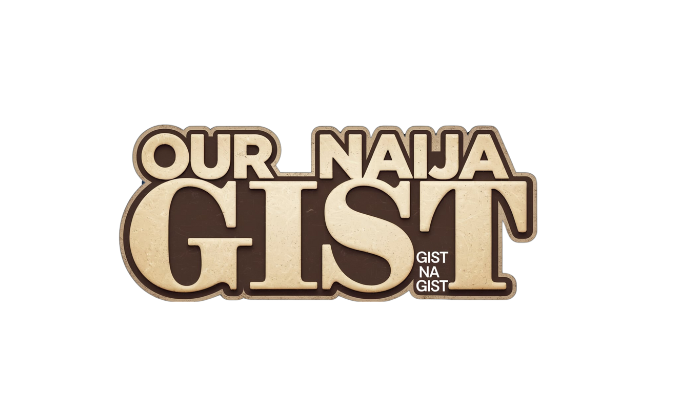Welcome to Faith Insights, where we explore the rich tapestry of Nigeria’s religion and culture. In this section, we will take a closer look at the tribal traditions that shape Nigeria’s diverse society and highlight the importance of interfaith dialogue for fostering unity and harmony.
Nigeria is a country known for its vibrant religious and cultural landscape. With over 250 ethnic groups, each with its own unique traditions and practices, Nigeria’s cultural heritage is a testament to its rich history and diversity. Understanding and appreciating these traditions is essential for building bridges of understanding and promoting a more inclusive society.
Interfaith dialogue plays a crucial role in Nigeria, as it enables individuals from different religious backgrounds to come together, engage in meaningful conversations, and foster mutual respect and tolerance. By encouraging dialogue and collaboration among Christians, Muslims, and adherents of traditional African religions, Nigeria strives to create a harmonious coexistence among its diverse population.
Join us on this insightful journey as we delve into Nigeria’s religion and culture, explore the fascinating tribal traditions, and discover the transformative power of interfaith dialogue in forging a brighter future for the nation.
Key Takeaways:
- Nigeria’s religion and culture are deeply intertwined, reflecting the country’s rich history and diversity.
- Tribal traditions play a significant role in shaping Nigeria’s cultural identity.
- Interfaith dialogue fosters understanding, respect, and harmony among Nigeria’s diverse religious communities.
- Nigeria’s religious landscape includes Christianity, Islam, and traditional African religions.
- By embracing Nigeria’s religion and culture, we contribute to a more inclusive and harmonious society.
Understanding Nigeria’s Religion and Culture
In Nigeria, religious beliefs and cultural practices play a significant role in shaping the vibrant society. The country’s diverse religious landscape includes Christianity, Islam, and traditional African religions, each contributing to the rich tapestry of Nigeria’s identity. By exploring the foundations of Nigerian religious beliefs and cultural practices, we gain valuable insights into the country’s unique heritage and diversity.
The Diversity of Nigerian Religious Beliefs
Nigeria is home to a wide range of religious beliefs, reflecting the country’s multicultural and multi-religious society. Christianity remains the most prominent religion, with an estimated 48% of the population identifying as Christians. Islam closely follows, with around 45% of Nigerians adhering to the faith. Additionally, traditional African religions continue to influence the lives of many Nigerians, giving rise to a spiritual and cultural blend that is both profound and dynamic.
Christianity in Nigeria has a long history, dating back to the arrival of European missionaries in the 19th century. Today, Nigerian Christians are diverse in their denominations, ranging from Roman Catholicism to various Protestant churches. Nigerian Muslims, on the other hand, predominantly belong to the Sunni branch of Islam and follow the teachings of the Quran and the Hadith. Traditional African religions, although less widespread, maintain their significance among certain ethnic groups and often incorporate ancestral worship and spiritual rituals.
Cultural Practices and Traditions
The cultural practices in Nigeria are deeply intertwined with religious beliefs, making them essential components of the Nigerian identity. Each ethnic group in Nigeria has its own unique customs and traditions, passed down through generations. From colorful festivals to elaborate ceremonies, these cultural practices celebrate the diversity of Nigeria’s people and their heritage.
For example, the Yoruba people are known for their vibrant festivals such as the Ogun festival, which honors the god of iron and celebrates bravery and skill. The Hausa-Fulani people have rich cultural traditions, including the Durbar festival, showcasing equestrian displays and colorful processions during Eid celebrations. The Igbo people have the masquerade festivals, where elaborate masks and costumes symbolize ancestral spirits and play significant roles in social and religious events.
The Value of Cultural Diversity
Nigeria’s cultural diversity is a source of pride and strength for its people. Embracing this diversity fosters unity and understanding among different communities, promoting social cohesion and national harmony. By appreciating and respecting the religious beliefs and cultural practices of various ethnic groups, Nigerians can build a more inclusive and tolerant society.
As Nigeria continues to evolve, it is essential to preserve and promote the country’s religious and cultural heritage. Through interfaith dialogue and cultural exchanges, Nigerians can learn from one another and create a shared vision for a harmonious Nigeria – a nation that cherishes its religious diversity and celebrates its cultural traditions.
| Nigerian Religious Beliefs | Population Percentage |
|---|---|
| Christianity | 48% |
| Islam | 45% |
| Traditional African Religions | 7% |
Exploring Tribal Traditions in Nigeria
In Nigeria, tribal traditions play a significant role in shaping the country’s rich cultural heritage. The mosaic of Nigerian tribes, each with their unique ancestral customs, contributes to the diverse tapestry of traditions that define the nation.
From the Yoruba in the southwest to the Hausa-Fulani in the north, Nigeria is home to numerous tribes, each with its distinct cultural practices and beliefs. These tribes have preserved their customs for generations, passing them down through storytelling, rituals, and celebrations.
The Yoruba people, for example, are known for their vibrant festivals, such as the annual Olojo Festival in Ile-Ife, which celebrates the dawn of creation. The festival showcases the Yoruba’s deep-rooted spiritual beliefs and traditional dances, allowing participants to connect with their ancestral heritage.
Similarly, the Hausa-Fulani’s cultural practices revolve around honor, respect, and community. Their weddings are elaborate affairs, featuring colorful attire, traditional music, and intricate henna designs. These customs reflect the tribe’s values and highlight the importance of unity and family in their society.
Exploring the traditions of Nigerian tribes provides invaluable insights into the country’s cultural diversity and fosters a deeper understanding of the interconnectedness of its people. It encourages appreciation for the customs and rituals that have shaped Nigeria’s identity throughout history.
“Nigerian tribes hold a wealth of cultural knowledge that is passed down from one generation to the next. Exploring their traditions allows us to honor their ancestral customs and preserve their cultural heritage for future generations.” – Dr. Akinwumi Ogundiran, Cultural Anthropologist
The Role of Interfaith Dialogue in Nigeria
In Nigeria, interfaith dialogue plays a pivotal role in fostering religious tolerance, peaceful coexistence, and religious harmony. It serves as a vital platform for promoting understanding and collaboration among different religious communities in the country.
Through interfaith dialogue, individuals from diverse religious backgrounds come together to engage in open and respectful conversations. They seek to bridge the gaps of misunderstanding, address misconceptions, and build lasting relationships based on shared values and mutual respect. The dialogue serves as a catalyst for nurturing compassion, empathy, and a deeper appreciation for each other’s beliefs and practices.
Religious tolerance is the cornerstone of a harmonious society. Interfaith dialogue allows us to embrace our religious differences while finding common ground to create a peaceful coexistence.” – Reverend James Okoye
Interfaith organizations, such as the Nigerian Inter-Religious Council (NIREC), actively promote interfaith dialogue and work towards bridging divides. These organizations facilitate dialogue sessions, seminars, and workshops where individuals can engage in meaningful conversations, exchange perspectives, and address challenges together.
By creating platforms for dialogue, interfaith organizations provide opportunities for religious leaders, scholars, and everyday individuals to come together and find solutions to societal issues. They encourage collaborative efforts in addressing common concerns, such as poverty, education, and healthcare, which transcend religious boundaries.
Furthermore, interfaith dialogue has played a significant role in combating religious violence and promoting peaceful resolutions. By fostering understanding and empathy, it minimizes the potential for conflicts that arise from religious differences and creates a foundation for peaceful coexistence.
Religious harmony is not the absence of diverse beliefs, but the ability to recognize and respect those differences. Interfaith dialogue paves the way for a society where individuals can practice their faith freely while embracing the diversity that enriches us all.
Conclusion
This article has provided a comprehensive overview of Nigeria’s religion and culture, highlighting the country’s rich tapestry of tribal traditions and the importance of interfaith dialogue. By exploring the diverse religious beliefs that shape Nigeria’s society, we gain a deeper understanding of its identity and cultural heritage.
Through the exploration of tribal traditions, we have uncovered the unique ancestral customs that define each Nigerian tribe, contributing to the country’s diverse and vibrant cultural landscape. These traditions hold great significance and serve as a testament to Nigeria’s rich cultural heritage.
Furthermore, we have emphasized the crucial role that interfaith dialogue plays in Nigeria. By promoting religious tolerance, peaceful coexistence, and religious harmony, interfaith dialogue fosters a sense of unity and creates a platform for understanding and collaboration among different religious communities.
Understanding and valuing Nigeria’s religion and culture is essential for building an inclusive and harmonious society. By appreciating the wealth of tribal traditions, the beauty of Nigeria’s cultural tapestry, and the significance of interfaith dialogue, we contribute to a nation that embraces diversity and cultivates mutual respect among its people.

